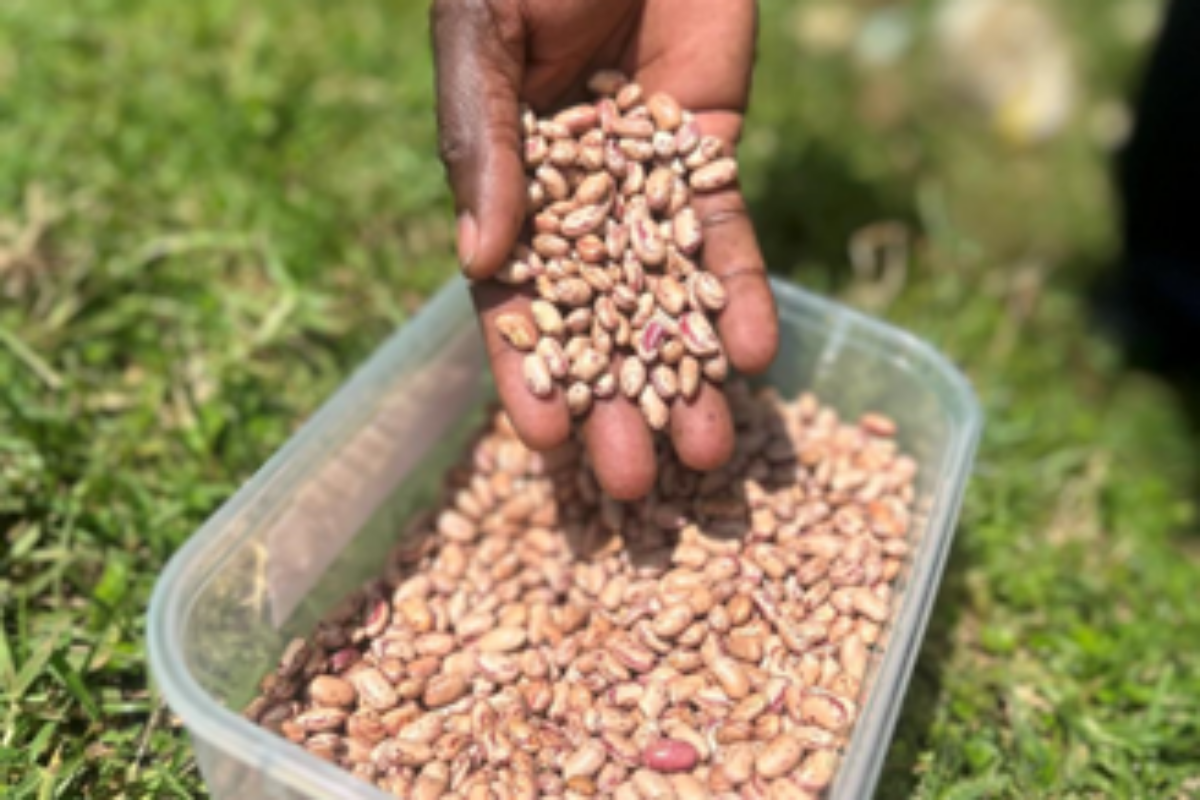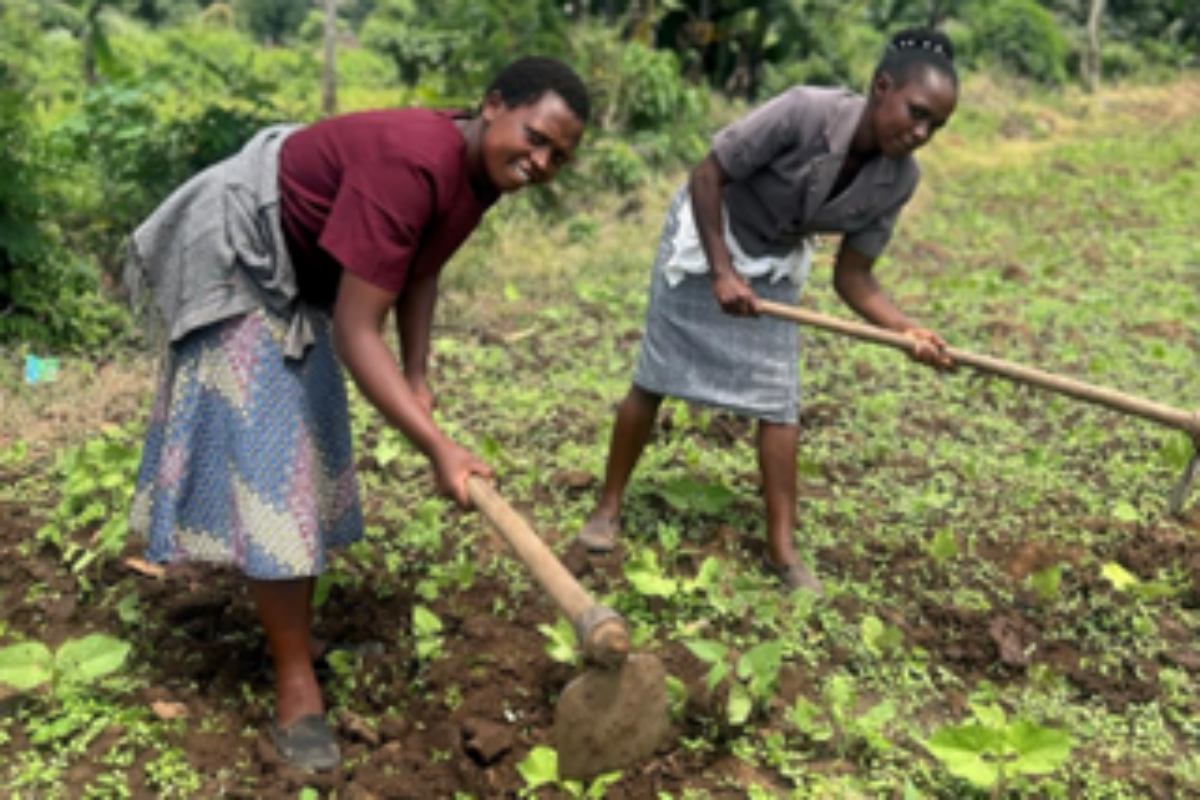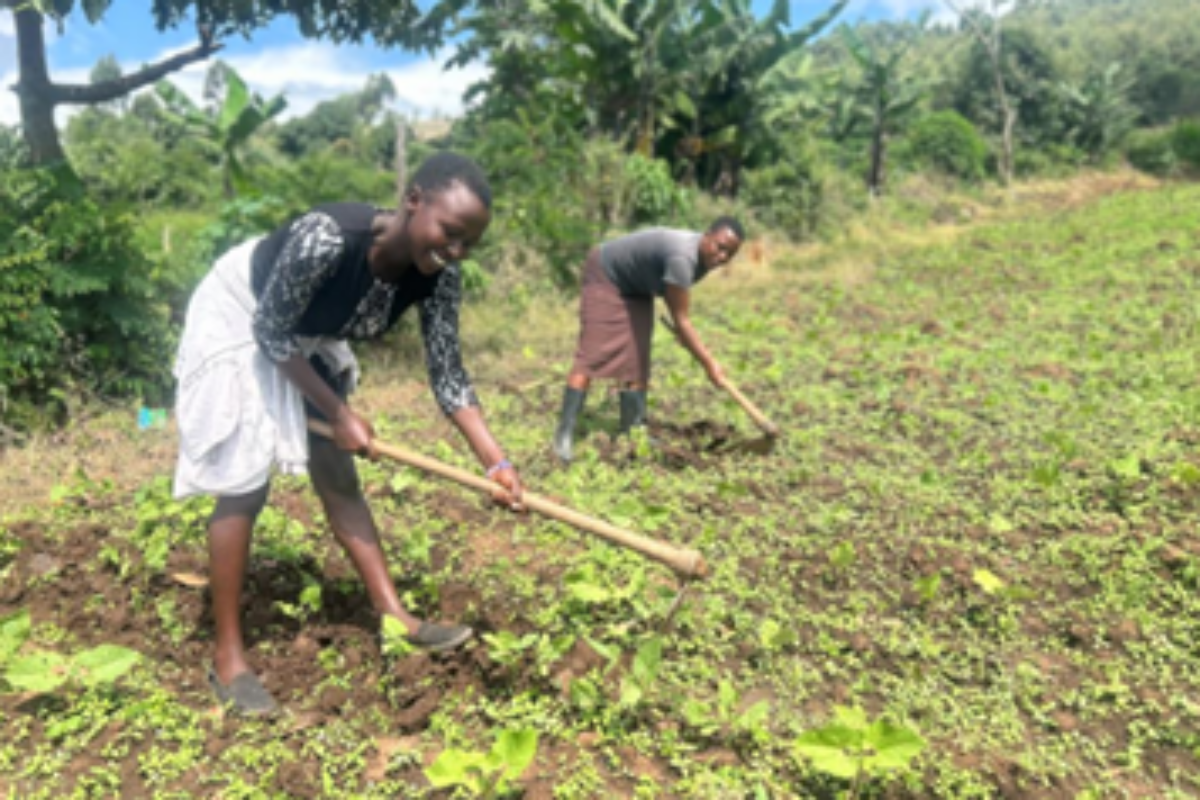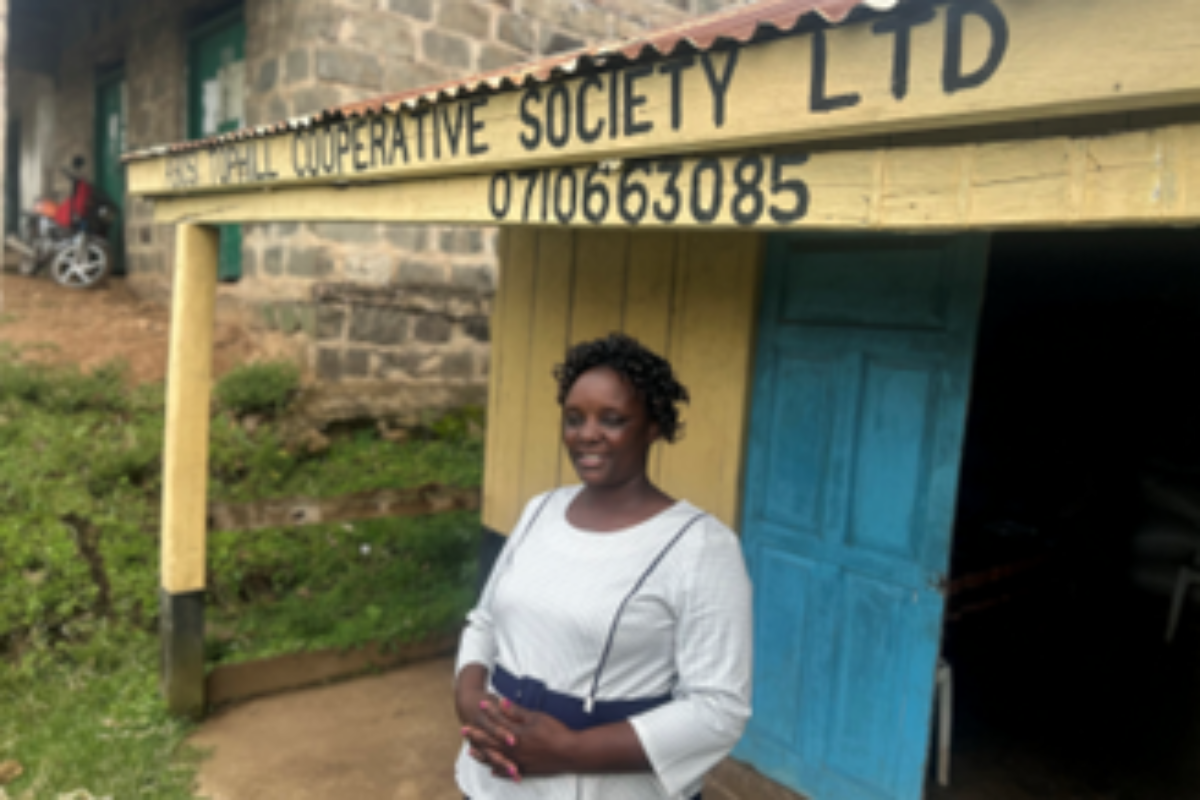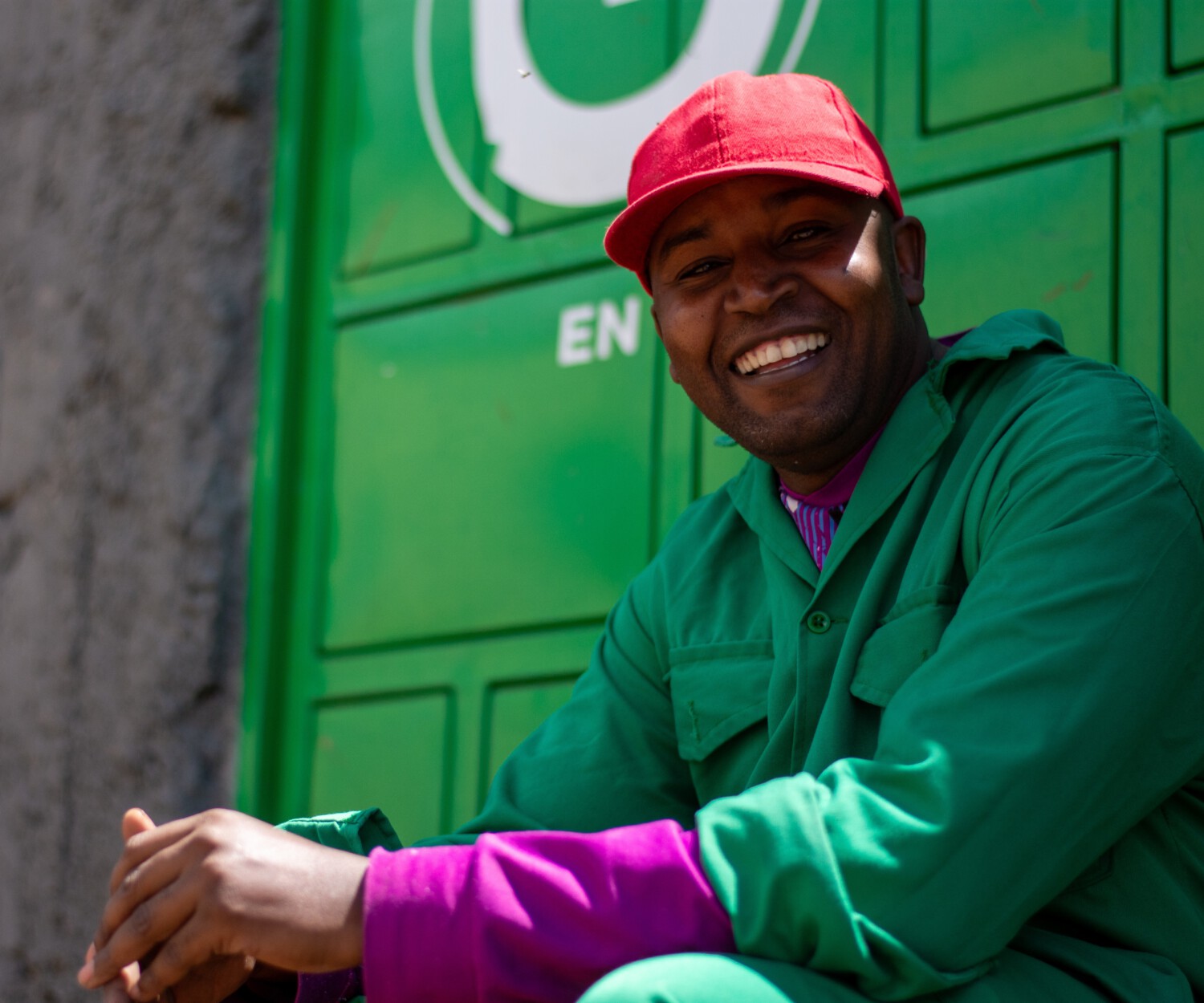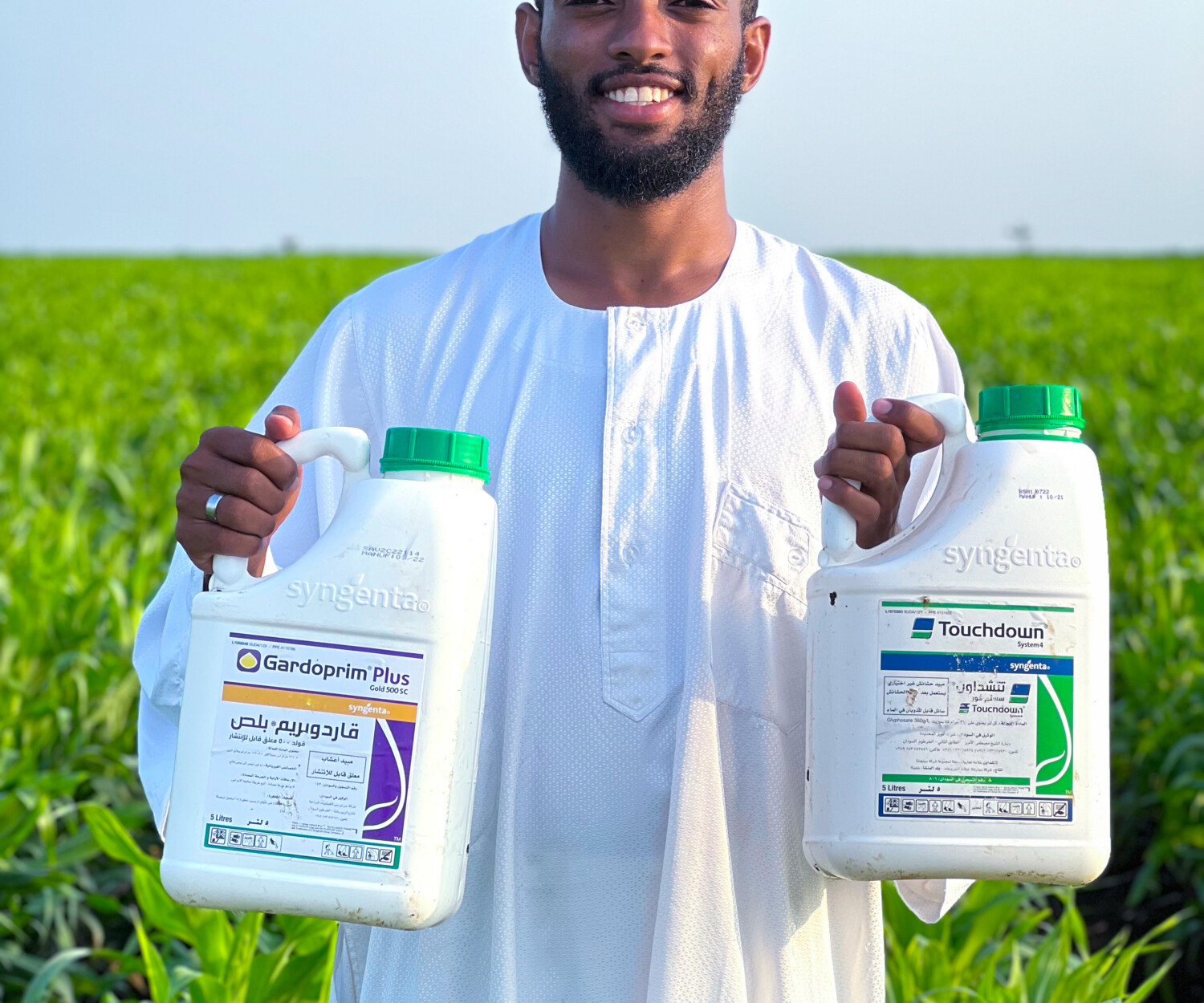In Bomet, an administrative town more than 220km away from Kenya’s Capital Nairobi, four young women farmers, Caren Cheluley (32 years old), Caren Chepkiriu (20 years old), Dorcas Chepkirui (19 years old) and Gladys Chepkemoi (27 years old) embraced High Iron Beans (HIB) farming, as a result of the collaborative project between Cherubet and Abosi Top Hill Cooperative, debunking the narrative that agriculture is not lucrative enough for young farmers.
In Sub Saharan Africa only 23% of young people work in traditional agriculture, while the average age of a farmer is 60 years old, highlighting the difficulties to attract young people in this sector. Youth’s lack of interest in agriculture can be attributed to various factors, such as a harsh policy environment, effects of climate change, and limited market information. These are further connected to youth’s negative perception of farming, which leads them to prefer jobs in urban areas where higher job supply, better salaries, and more opportunities for career growth exist.
With the testimonies shared by these four young smallholder farmers – Caren Cheluley, Gladys Chepkemoi, Dorcas Chepkirui, and Caren Chepkiriu – the story takes a different turn, and show that opportunities and hope that HIB farming can give to young people at various stages of their lives.
Caren and Gladys are young mothers and willing to go any length to ensure the wellbeing of their family. Thanks to their involvement in HIB farming, they found an opportunity to earn a decent income for their family. When Caren was asked about her motivation to start HIB Farming she shared that, as a young mother, she found herself under a lot of pressure to ensure thather kids not only had enough food for consumption but also had an improved quality of life compared to what she went through.
In rural areas, where employment opportunities are fewer than in urban areas, learning HIB farming helped me earn a decent income and take care of my young children. Through this partnership with CFYE, I have been able to get the training needed for me to be a successful bean farmer. Since I started farming, I am now able to make $100-$150 which has helped me take care of my family.
– Caren Cheluley
Aligning with this view Gladys Chepkemoi shared that HIB farming gave her the opportunity to add extra sources of revenue, including a new dairy cow worth 150$, with more than 50% of the capital coming from her farming.
On the other hand, the other two young women, Caren and Dorcas Chepkiriu , just finished high school and decided to venture into HIB farming to sustain themselves and their community while they figure out their career path.
Caren and Dorcas’ situation is very similar. Dorcas’ example shows how the profit made from farming can empower young women and provide financial resources to continue their education:
“I have recently finished my high school. I would like to attend college and farming is helping me achieve this goal. Farming has allowed me to put savings aside to pay for my school fees.”
I have recently finished high school, and I felt the need to engage in farming to both contribute to my community and be a productive member of society and become financially stable. Through Abosi Cooperative mentorship and support, I was able to convince my parents to lease me a piece of land to farm.
– Caren Chepkiriu
Training and Employing youth in HIB farming – what is the impact on job creation?
The four young female farmers, members of the Abosi Top Hill Cooperative society, are part of the project implemented by Cherubet Foods in partnership with the Challenge Fund for Youth Employment (CFYE). The collaboration aims to support Cherubet Foods to forge business collaborations with local cooperatives and to provide 300+ youth with employment opportunities in the production and sale of nutritious beans and bean-based processed products.
Their stories are an integral part of the objective that the cooperative is looking to achieve: building youth’s capacity to produce tradeable volumes of high-yielding bean grains, attracting them into farming by providing them with bean threshers and motorised pumps, and setting up a processed product distribution network. These efforts will create at least 500 jobs and also allow Cherubet to meet their high demand of at least 2MT of HIB per week for its food processing plant located in Nairobi.
In 2021 Cherubet started working with Abosi Top Hill Cooperative, with a specific mission of bringing students from challenging backgrounds to colleges and universities. Their focus changed slightly when they saw in HIB farming a potential avenue for both improving the economic conditions of young farmers and creating long-lasting social impact. By evolving the nature and scale of their collaboration with Abosi Top Hill Cooperative has so far created or improved over 193 jobs (with 70% of the jobs targeting women), and an additional 170 jobs have been created or improved with other partners, leading to a total of 363 jobs and more than 200 metric tonnes of HIB procured and sold.
However, what the cooperative and Cherubet noticed is that working with young farmers has not necessarily been smooth sailing. According to Hellen Keti, Chair Lady of Abosi Top Hill cooperative, getting youth to start farming has been challenging due young people’s high-income expectations from farming, limited access to land, lack of technical farming knowledge, as well as poor mentorship, which leads to young farmers giving up too early when farming becomes too hard. However, the partnership with CFYE and their technical support in attracting and retaining youth in this sector has helped address some of the challenges.
“As Abosi Cooperative, the partnership with Cherubet and CFYE has opened us to opportunities of mentoring young people to take agriculture seriously. We have provided trainings on farming techniques, access to market for their produce, networking opportunities through field visits that have helped reshape young people’s attitude towards farming as well providing a key source of livelihood.”
– Hellen Keti
As the partnership with Cherubet comes to an end in the next few months, the program has created great insights and learnings on how to bring young people back to farming with interventions such as technical skills development, increased access to market opportunities, and providing a stable platform that can redefine their entrepreneurship journeys.
More stories
Interested in more?
Vacancy
Consultancy – Technical Assistant Expert
 Sade Aalto-Setala
Sade Aalto-Setala
 December 3, 2025
December 3, 2025
